
Raise your hand if anyone has every responded to your vegan diet with the question “but how do you get enough protein??” I can’t see your hands – but I KNOW a lot of them are in the air (wave them around a bit while they’re up there… just for fun.) It is absolutely the most common question I get asked. But in my 30 years of eating a vegetarian diet, and 10 years as a Naturopathic Doctor in Toronto I have gotten really good at answering this question!
And today I’m sharing with you the most complete list of vegan (and vegetarian) proteins I have ever compiled. I hope that it will give you confidence to respond to all those people who question the protein density of a healthy vegan or vegetarian diet.
But first – how much protein do you need??
A general guideline is 0.8g per kg of body weight. I suggest that vegans aim a bit higher – around 1g per kg of body weight to account for the lack of certain amino acids in various vegan proteins. More on this later… read on…
And now, lets get into it!
66 Vegan Proteins
Beans
 Black beans
Black beans
1 cup*: 15g protein
With 15g of protein and 15g of fiber, black beans are a sure fire way to keep you feeling full and energized.
Garbanzo beans (Chick peas)
1 cup: 15g protein
Most of the fiber in chickpeas is insoluble, meaning it passes through your body unchanged until it reaches your large intestine where the healthy bacteria metabolize it into short chain fatty acids needed to support your intestinal wall. This can help to reduce the incidence of colon cancer, while also keeping you feeling full and having healthy bowel movements.
Kidney beans
1 cup: 15g protein
Full of molybdenum, essential for detoxifying sulfites (hello wine), kidney beans are also a super source of fiber and protein.
Lima beans
1 cup: 15g protein
Buttery and a good source of manganese, essential for energy production, lima beans also provide nearly a quarter of your daily iron – bonus!
Miso
1 cup soup: 6g protein
One of my personal favourites, a cup of miso soup gives a respectable 6g of protein. I like to have a cup in the mid-afternoon to boost energy instead of coffee or tea.
Navy beans
1 cup: 15g protein
Navy beans are small white beans (it got its name not from its colour, but from its popularity with the US Navy!) and are a great source of vitamin B1 which is essential for memory and concentration.
Pinto beans
1 cup: 15g protein
Pretty pink polka dotted pinto beans provide an excellent source of potassium, which can help keep your blood pressure and stroke risk low.
Soy beans (Edamame)
1 cup: 25g protein
Unique among the beans, soy beans are not deficient in methionine, and are considered a complete protein (containing all the essential amino acids humans need).
Tempeh
1 cup: 31g protein
A source of highly bioavailable calcium, tempeh can provide a healthy source of calcium to vegans and dairy-free vegetarians. Fermented soy foods, like tempeh, also provide bone supporting vitamin K.
Tofu
1 cup: 20g protein (firm tofu)
With increasing protein with increased firmness, firm and extra firm tofu are powerhouses of protein. Soft tofu is also excellent for desserts and to provide a creamy texture to soups.
White kidney beans (Cannellini beans)
1 cup: 12g protein
The delicious relative of the navy bean, cannellini beans are high in fiber and protein and make delicious dips and spreads as well as being a superstar in soups.
*All portions are for cooked beans
Lentils
Brown lentils
1 cup*: 18g
Along with beans and peas, lentils are a member of the legume family. Full of fiber and folate, lentils are also a great source of iron.
Green lentils
1 cup: 18g protein
A more sturdy member of the lentil family, green lentils are excellent in soups and salads, providing a hearty filling protein and loads of fiber.
Red lentils
1 cup: 18g protein
All lentils are high in lysine, but deficient in cysteine and methionine, making them an incomplete protein. Combined with healthy whole grains these little wonders provide a dynamic duo of vegan protein.
*All portions are for cooked lentils
Peas
 Black eyed peas
Black eyed peas
1 cup: 4g protein
Thought to bring luck if eaten on New Years Day, black eyed peas also provide around 2mg of iron and half of your daily folate needs.
Green peas
1 cup: 7g protein
Who knew these little spheres could pack such a powerful punch? An good source of iron (2mg per cup), peas are also a source of coumestrol – a compound that has been found to lower the risk of stomach cancer.
Split peas
1 cup: 16g protein
Split peas, or dried peas, are known sources of healthy hormone balancing isoflavones, like daidzein, that help to reduce the risk of breast and prostate cancers.
Nuts
Almonds
1/4 cup: 5g protein
Almonds are an excellent source of manganese and copper – two cofactors necessary for energy production in our cells. All packaged together in a delicious little nut – thanks Nature!
Brazil nuts
1/4 cup: 5g protein
In Brazil it is illegal to cut down a Brazil nut tree – and many nuts we eat come from wild collection rather than plantations. Brazil nuts are the richest dietary source of selenium, an essential nutrient for immune and thyroid health, and one that is often deficient in North American soils.
Cashews
1/4 cup: 6g protein
Did you know, cashews are actually the seed of the cashew apple?? I had no idea. Learning something new every day. Cashews are lower in fat than other nuts, and most of their fats are the heart-healthy monounsaturated fatty acids.
Hazelnuts (Filberts)
1/4 cup: 5g protein
While they may be best known for their infamous chocolate-hazelnut spread, one serving of hazelnuts provides 100% of your daily needs for vitamin E – one of our most important antioxidants.
Macadamia nuts
1/4 cup: 3g protein
One of the highest fat nuts (and one of the most delicious), macadamia nuts can provide you with a full dose of vitamin B1, necessary for turning protein and carbohydrates into energy. Delicious and energy rich!
Peanuts
1/4 cup: 9g protein
Higher in protein than most other nuts, peanuts are also an excellent source of biotin – a B vitamin essential for healthy hair and nails. Keep in mind most commercial peanut butters are full of sugar, so opt for shelled peanuts or 100% peanut butters.
Pecans
1/4 cup: 2.5g protein
No matter how you pronounce it, pecans are one of North American’s favourite nuts. Most often used in sweet treats, pecans can provide a bit of vegan protein and a healthy wallop of manganese to keep your energy up!
Pine nuts
1/4 cup: 4.5g protein
With nearly 2mg of iron in each ¼ cup of pine nuts, these savoury bites are a great vegan food. Known mostly for their presence in pesto, pine nuts can also be sprinkled on salads and stir fry.
Pistachios
1/4 cup: 6g protein
The pleasure of eating pistachios from the shell is increased by knowing that a serving of pistachios can give you half of your daily amount of vitamin B6. B6 is a vitamin essential for hormone balance and the neurotransmitter serotonin, which is associated with happiness.
Walnuts
1/4 cup: 5g protein
Walnuts may not be the most delicious nut, they may have the distinction of being the healthiest nut. Richest in omega 3 fatty acids, walnuts also have high amounts of gamma tocopherol – a type of vitamin E that is incredibly protective for our hearts.
Seeds
Chia seed
2 tbsp: 4g protein
Ok, who still feels like they are butchering their childhood chia pet? Just me… that’s ok too. One way or another chia seeds are finding their way into our lives! The best way to enjoy chia is in your morning smoothie or to make super yummy chia pudding – pudding for breakfast and dessert? And 4g of protein? Yes please!
Flax seed
2 tbsp: 2.5g protein
The best vegan source of omega 3 fatty acids, flax seeds are a powerhouse of nutritional benefits for plant based diets. Add to smoothies, sprinkle ground flaxseed on oatmeal or salads, or just about anything!
Hemp seed
2 tbsp: 10g protein
They aren’t going to get you high, but they will give you some stellar omega fatty acids and a massive hit of protein as well! Unlike flaxseeds they don’t need to be ground for us to digest them, just sprinkle them on your foods, or throw them in your smoothie for a powerful protein punch
Pumpkin seeds
2 tbsp: 2g protein
One of the top plant sources for zinc, a nutrient essential for thinking and for immune function, a ¼ cup of pumpkin seeds (10g of protein!) will also give you a few mg (2.8) of iron as well! A healthy plant based snack or a tasty addition to salads.
Sesame seeds
2 tbsp: 3g protein
Open (your mouth to) sesame!! (Funny? Not funny? I chuckled a little…) Sesame seeds may be small, but they are a great source of vegan calcium and can easily be added to just about any food for a mild nutty taste.
Sunflower seeds
2 tbsp: 4g protein
Has anyone ever told you to eat sunflower seeds because you burn more energy cracking them than you get from eating them? Well sadly that isn’t true (you’d only burn around 70 calories and a cup of sunflower seeds has nearly 270 calories). But don’t let that stop you! Sunflower seeds are rich in anti-inflammatory and antioxidant vitamin E.
Poppy seeds
2 tbsp: 3g protein
Step aside hemp seed, if you want to get high this might be the seed for you. Well, not really… While the opiate compounds in poppy seeds can cause you to fail a drug test, the tiny amounts (around 0.5-10 mcg per gram) of morphine are no where near the amount necessary to produce anything close to a high (5000 to 30 000mcg). So sprinkle away without any fear (or hope) of intoxication!
Grains
 Amaranth
Amaranth
1/2 cup*: 4.5g protein
A complete protein (unusual amongst the grains), amaranth provides all the essential amino acids. As a whole grain (germ intact!), amaranth has a decent amount of fiber (5g) and B vitamins to help you turn your food into energy.
Barley
1/2 cup: 3g protein
Nourishing, filling barley gives you a healthy dose of fiber, and the high magnesium content may help to reduce the risk of developing diabetes.
Buckwheat
1/2 cup: 3g protein
A diet high in unrefined grains, like many of those on this list, has been found to reduce the incidence of gallstones in women. This is likely why vegans have a lower risk than the average population!
Bulgur
1/2 cup: 3g protein
A type of wheat, bulgur should be avoided by those with celiac disease or known gluten intolerance. If you can tolerate it, it makes a nice substitution for rice.
Ezekiel bread
2 slices: 8g protein
“Take wheat, barley, beans, lentils, millet, and spelt, put them in one vessel and make them into bread for yourself” – Ezekiel 4:9. This biblical recipe makes for one delicious and nutritious bread. Containing all 9 essential amino acids, this sprouted bread is also easy to digest. Look for it in the freezer at your grocery store.
Farro
1/2 cup: 4g protein
One of the many foods on this list you may not have heard of, farro is an ancient wheat grain with an amazing nutty taste. As a member of the wheat family, it does contain gluten.
Freekeh
1/2 cup: 12g protein
Another wheat cousin with a fun sounding name, Freekeh, also known as Farik, has more protein than many of the other grains on this list. It’s also high in zinc and iron. But remember, as a member of the wheat family it does contain gluten.
Kamut
1/2 cup: 5.5g protein
Yet another wheat (is anyone keeping a tally??), kamut is a gluten-containing grain that is so ancient it has been found in pharaoh’s tombs. Excellent as a replacement or companion for barley in soups and salads.
Millet
1/2 cup: 3g protein
You may be feeding it to the birds in your garden, but maybe you should consider keeping some of the millet for yourself. Millet makes an excellent breakfast porridge or enjoy it (in moderation) as the popular roti flatbread.
Oats
1/2 cup: 5g
We all recognize this whole grain! And those of us who eat oatmeal regularly may also have a smaller waist circumference according to some studies. Go for the steel cut oats rather than the processed oats for maximal health benefits.
Rice
1/2 cup: 2.5g
Brown rice and white rice are essentially the same grain, but with white rice the nutritional hull is removed, destroying the vast majority of nutrients in the rice. So stick with brown rice and get all the B1, B3 and B6 rice has to offer.
Rye bread
2 slices: 5g
Unlike wheat, rye is difficult to separate from the hull, leading to a higher fiber gluten-containing bread. While bread should only be consumed in moderation, a bit of rye can provide protein and double the fiber of wheat bread.
Seitan
1/2 cup: 31g protein
Many of the grains listed here contain gluten, but seitan IS gluten – sometimes it is even called gluten (or wheat meat or wheat protein). Made by isolating the gluten from wheat, seitan is more meat-like than most other vegan proteins and is popular in vegan restaurants.
Sorghum
1/2 cup: 8g protein
A gluten-free ancient grain, sorghum is hearty and chewy (similar to quinoa) and is fantastic in pilafs and risottos. Also a good source of vegan iron (4mg per ½ cup!)
Spelt bread
2 slices: 6g protein
Yet another member of the wheat family (contains gluten), spelt is often used to make bread and other baked goods instead of traditional wheat. Spelt has more niacin, copper, iron, zinc, magnesium and phosphorus than wheat, meaning that choosing spelt bread may give you an edge over your old fashioned wheat bread.
Teff
1/2 cup: 5g protein
Technically a seed rather than a grain, teff is native to Ethiopia. It cooks up similar to quinoa, but cooks a bit faster (great for a quick dinner!) Teff is a great source of manganese, which helps you make energy to keep you going all day.
Triticale
1/2 cup: 12g protein
The laboratory love child of wheat and rye (brought to us by 19th century Scottish and German scientists), triticale is higher in protein and lower in gluten than wheat (but keep in mind it still does contain gluten). A sturdy grain, it makes an excellent salad or cereal.
Quinoa
1/2 cup: 4g protein
Remember when no one knew what quinoa was? Oh, the simpler times of 5 years ago… who knows which of the foods on this list will rise to superstardom next (remember you read about them first here!) Quinoa is also a seed, rather than a grain, and has the full amino acid profile needed to be considered a complete protein.
Wheat (whole)
2 slices: 7g protein
1/2 cup pasta: 4-7g protein
The most commonly consumed grain in North America, wheat provides the majority of its protein in the form of gluten, a no-no for celiacs and those with gluten intolerance. White bread, a highly processed form of wheat, only provides 3g of protein for 2 slices.
Wheat berries
1/2 cup: 6.5g protein
Wheat berries, not actually a berry, but actually a whole grain form of what, are what wheat looks like before it undergoes any processing. Wheat berries take a while to cook but stand up amazingly well in grain salads.
Wild rice
1/2 cup: 3g protein
Another misnomer in this category is wild rice. Not actually a rice at all, wild rice is an aquatic grass that can be grown in lakes in Canada and the US. Wild rice doesn’t have the full complement of amino acids to be a complete protein, similar to many of the other grains, but combined with beans can be an excellent addition to your diet.
*All portions are for cooked grains
Vegetables
Delicious, and completely worth the effort, artichokes are one of the top protein containing vegetables. Some early research also suggests that artichokes have the potential to lower cholesterol – an added bonus to an already delicious food.
Asparagus
1 cup: 4g protein
A good source of quercetin, asparagus could help to reduce allergy symptoms – important since asparagus is freshest during the Spring when allergy season kicks in for many sufferers.
Avocado
1 cup: 4g protein
Best known for its healthy fats, avocado can also provide you with a nice bump in your daily protein intake. With 1 avocado providing around 4g of protein you will be looking at your avocado toast with newfound respect.
Broccoli
1 cup: 4g protein
Love it or hate it, broccoli is a stellar anti-inflammatory with the ability to suppress inflammation with its high content of isothiocyanates (that’s a mouthful). Better yet, get a mouthful of broccoli – or the other types of broccoli like broccoli rabe or rapini.
Brussels sprouts
1 cup: 4g protein
Lots of research has been published looking at the cancer risk reducing impact of eating Brussels sprouts. Brussels sprouts support three essential actions in reducing cancer risk – detoxification, antioxidant and anti-inflammatory.
Corn
1 cup: 3g protein
Perhaps not the healthiest option on this list, corn is also not in the right category. Technically a grain, since we all treat it like a vegetable I’ve opted to stick it here. Corn isn’t particularly dense in any nutrient, so use it sparingly and opt for fresh corn over processed corn foods.
Guava
1 cup: 4.2g protein
Guava is a fruit that is ready to come to the table. With the highest amount of protein of all the fruits (and more than many of the veggies on the list), maybe we should be making space for guava in the fruit bowl more often!
Kale
1 cup: 2.5g protein
Is there anything kale can’t do? It’s the superhero of vegetables everywhere. And with the highest content of lutein, a eye healthy antioxidant, you could spend a long happy life looking at all that kale in your shopping basket.
Mushrooms
1 cup: 2g protein
A potential source of vegan B12 (scientists are still hotly debating this issue), mushrooms are also a good source of eight different vitamins and six minerals, including zinc for immune health and DNA replication.
Spinach
1 cup: 5g protein
We all love spinach as a source of vegan iron, magnesium and folate, in addition to a nice selection of B vitamins, but spinach also has a nice amount of protein. And it’s so easy to incorporate into smoothies, salads, soups, and more!
Spirulina
1 tbsp: 4g protein
This seaweed is about 60% protein so a little bit can go a long way towards helping you meet your daily protein requirements. With a unique mineral profile, providing calcium, iron, magnesium and iodine, spirulina can support metabolism and energy production.
Protein Combining
Just a quick note on protein combining. Many vegan proteins are not complete proteins – meaning they are lacking one or more of the 9 essential amino acids necessary for human health. Nutrients are considered essential when we can’t make them ourselves and need to consume them in our diet. The nine essential amino acids are:
- Histidine
- Isoleucine
- Leucine
- Lysine
- Methionine
- Phenylalanine
- Threonine
- Tryptophan
- Valine
In general beans are deficient in methionine and grains are deficient in lysine and threonine. In order to balance the amino acids you should aim to consume foods in both these categories each day – it doesn’t have to be in the same meal, but aim to provide your body with balanced amino acids every day.
| Food | Deficient Amino Acid | Complementary food |
| Beans and legumes | Methionine | Grains, nuts, seeds |
| Grains | Lysine, threonine | Beans and legumes |
| Nuts and seeds | Lysine | Beans and legumes |
| Vegetables | Methionine | Grains, nuts, seeds |
| Corn | Tryptophan, lysine | Beans and legumes |
Did I miss any of your favourite vegan proteins? Let me know in the comments below!



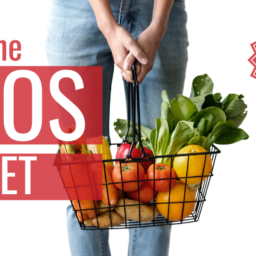
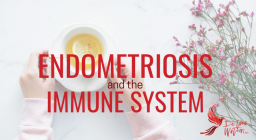
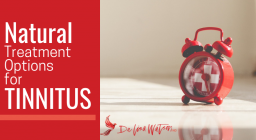
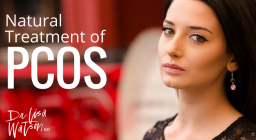
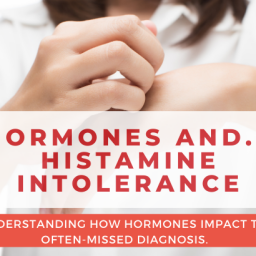
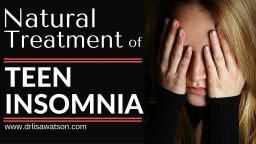


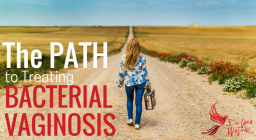


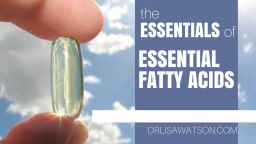

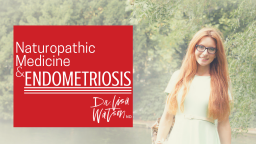
Hi Dr. Lisa, thank you! I do have a question about Tofu & Tempeh. I love organic, non-GMO tofu but there is so much information out there and advice to stay away from Soy. So then I get nervous about eating tofu. Is it healthy, should I be avoiding it. Is it just a matter of frequency, should I eat it sparingly and still be a healthy part of my diet. Thanks!
Hi Barb. This is a question I get quite often! The debate on soy is complex and has been raging for decades. The most compelling reason to avoid soy is if you have thyroid dysfunction – but in this case adequate iodine can prevent any negative effects of soy consumption. The other debate is on the estrogenic effects of soy – this is often mentioned in the media as it is quite frightening. However the most recent research suggests that soy consumption is PROTECTIVE against the high estrogen burden most of us are carrying – soy is such a mild estrogen that it prevents environmental estrogens (xenoestrogens) and our own estrogens from exerting such a powerful effect. There is new research suggesting it is safe for women at risk for hormonal cancers, and may even be beneficial for people who have had hormonal cancers. A long answer – but i hope it helps! Perhaps I should write an article on this topic… 🙂 ~ Dr. Lisa